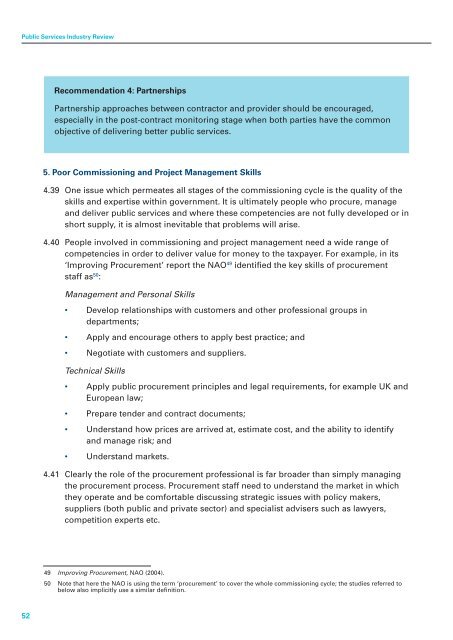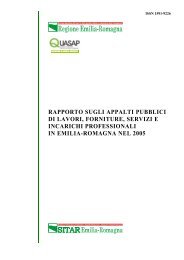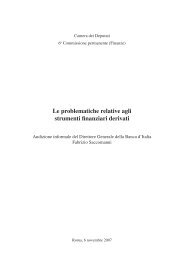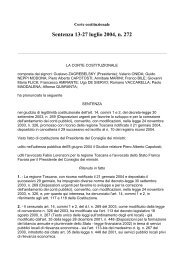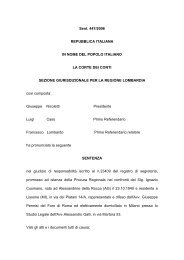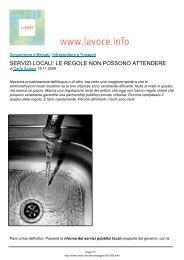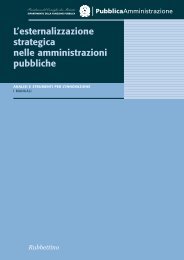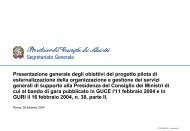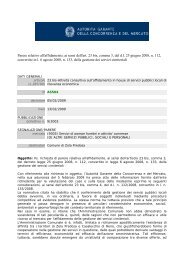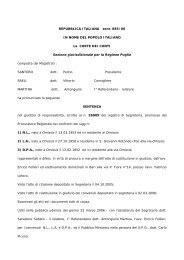Understanding the Public Services Industy
Understanding the Public Services Industy
Understanding the Public Services Industy
You also want an ePaper? Increase the reach of your titles
YUMPU automatically turns print PDFs into web optimized ePapers that Google loves.
<strong>Public</strong> <strong>Services</strong> Industry Review<br />
Recommendation 4: Partnerships<br />
Partnership approaches between contractor and provider should be encouraged,<br />
especially in <strong>the</strong> post-contract monitoring stage when both parties have <strong>the</strong> common<br />
objective of delivering better public services.<br />
5. Poor Commissioning and Project Management Skills<br />
4.39 One issue which permeates all stages of <strong>the</strong> commissioning cycle is <strong>the</strong> quality of <strong>the</strong><br />
skills and expertise within government. It is ultimately people who procure, manage<br />
and deliver public services and where <strong>the</strong>se competencies are not fully developed or in<br />
short supply, it is almost inevitable that problems will arise.<br />
4.40 People involved in commissioning and project management need a wide range of<br />
competencies in order to deliver value for money to <strong>the</strong> taxpayer. For example, in its<br />
‘Improving Procurement’ report <strong>the</strong> NAO 49 identified <strong>the</strong> key skills of procurement<br />
staff as 50 :<br />
Management and Personal Skills<br />
•<br />
•<br />
•<br />
Develop relationships with customers and o<strong>the</strong>r professional groups in<br />
departments;<br />
Apply and encourage o<strong>the</strong>rs to apply best practice; and<br />
Negotiate with customers and suppliers.<br />
Technical Skills<br />
•<br />
•<br />
•<br />
•<br />
Apply public procurement principles and legal requirements, for example UK and<br />
European law;<br />
Prepare tender and contract documents;<br />
Understand how prices are arrived at, estimate cost, and <strong>the</strong> ability to identify<br />
and manage risk; and<br />
Understand markets.<br />
4.41 Clearly <strong>the</strong> role of <strong>the</strong> procurement professional is far broader than simply managing<br />
<strong>the</strong> procurement process. Procurement staff need to understand <strong>the</strong> market in which<br />
<strong>the</strong>y operate and be comfortable discussing strategic issues with policy makers,<br />
suppliers (both public and private sector) and specialist advisers such as lawyers,<br />
competition experts etc.<br />
49 Improving Procurement, NAO (2004).<br />
50 Note that here <strong>the</strong> NAO is using <strong>the</strong> term ‘procurement’ to cover <strong>the</strong> whole commissioning cycle; <strong>the</strong> studies referred to<br />
below also implicitly use a similar definition.<br />
52


